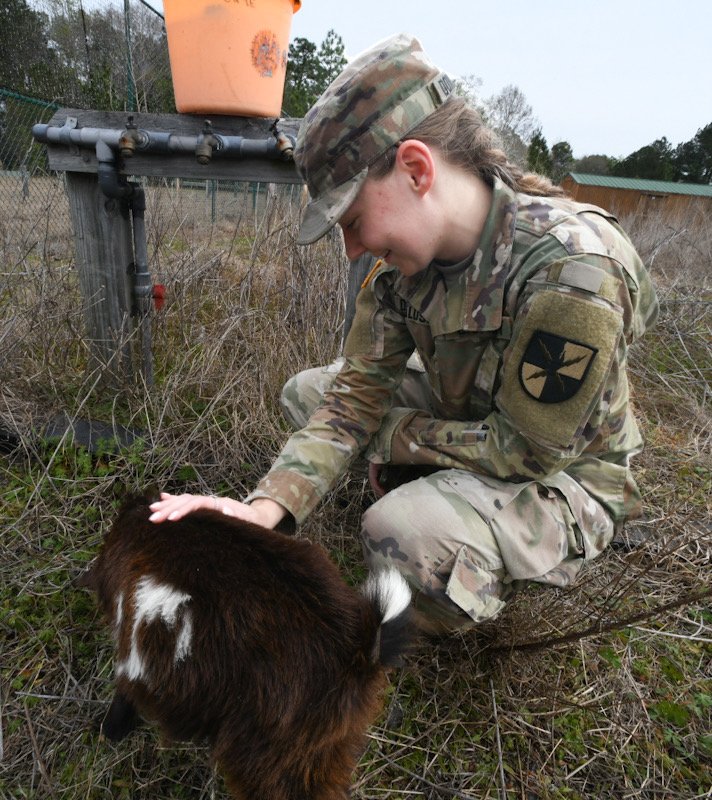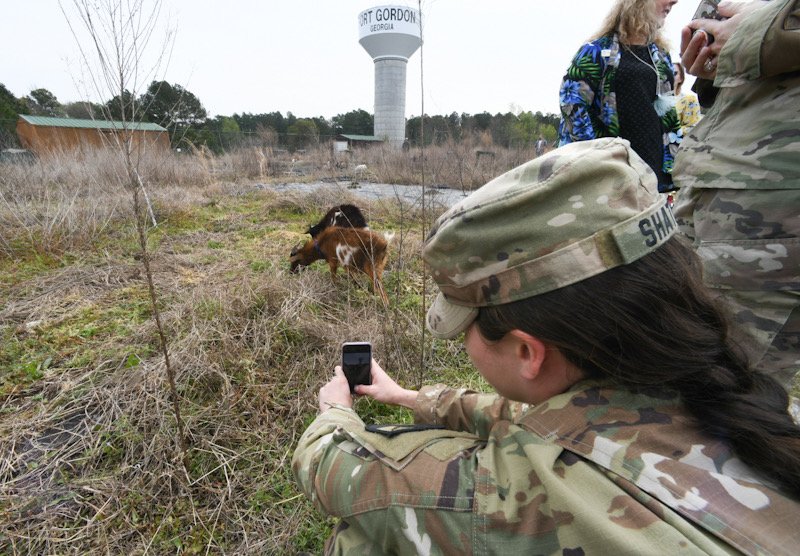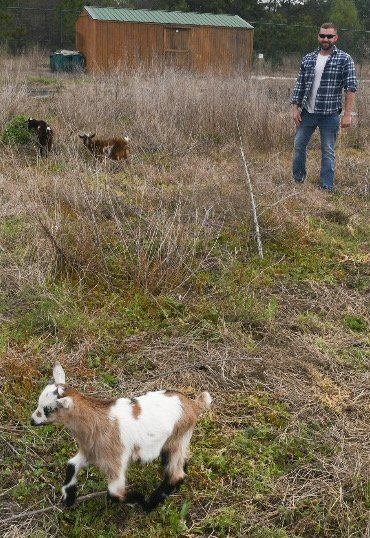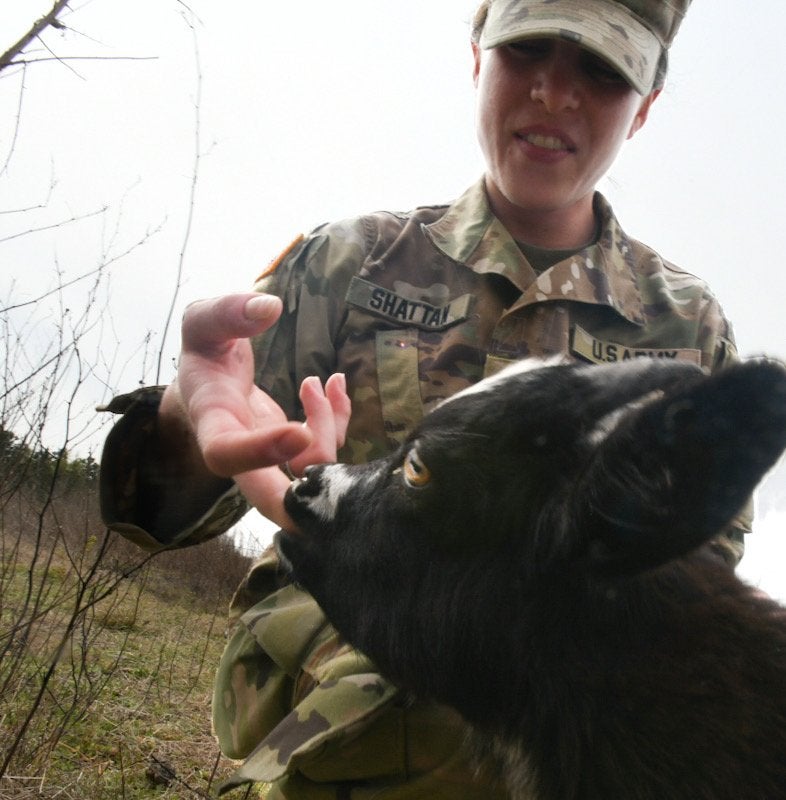When 2nd Lt. Cara Shattan saw an online post that there would be goats on Fort Gordon, she thought it was some early April Fool’s joke.
But on Friday in an overgrown community garden near the base post exchange, there they were – a herd of baby goats and two adult goats. Nobody paid attention to the adult goats.
[adrotate banner=”51″]
“I approve,” Shattan said as she and her friend, 2nd Lt. Sarah Donaldson, snapped photos and petted baby goats.

The goats were munching on grass and weeds as part of an experiment to see if the animals can clear away overgrowth more cheaply, and obviously more adorably, than soldiers with push mowers or civilian work crews on tractors.

There were a lot of people staring at goats. Mostly women and children who said “aww.” A lot. Few men, though there was Rob Daniello who stared at and chased goats. He was attempting to demonstrate how one baby goat in the herd will faint when frightened. It’s a genetic defect that breeders have taken advantage of in order to supply cheap fainting goats to herders so predators will eat the fainting goats instead of the more valuable – and better running – goats.
Daniello’s prey seemed to be over the fainting. It just ran.

Daniello owns a small cattle farm in Thomson and uses goats to clear off shrub and weeds his cattle won’t eat. He agreed to bring his goats onto post once a week to see how quickly, and cheaply, they can clear off community gardens that were left fallow at the beginning of the pandemic and are now overgrown with tall weeds. Daniello also works on post for the Department of Defense.
The idea of deploying goats landed on the desk of Rosa Criggedorn who works in the garrison commander’s plans and analysis office. People who live and work on base had complained about the weeds and grass getting too high around Fort Gordon and a few suggested using goats.
It became Criggedorn’s responsibility to figure out if and how it could be done. She is used to thinking out of the box. She and her husband cut their names in half and combined them to form a new name when they got married, for example.
Criggedorn devised a goat experiment – but was quick to say no goats would die as part of psychic warfare as in the 2009 George Clooney comedy film The Men Who Stare at Goats. Instead, she and others will simply observe the goats in action and then write up a comparison of cutting overgrowth with fuel-chugging tractors pulling brush shredders or dainty weed masticating herbivores, who may or may not faint.
She plans to present her findings to Fort Gordon Garrison Commander Col. Shaw Pick. His choice about whether to deploy goats could be his last important decision as an Army commander since he will be retiring soon.
On Friday afternoon, he visited the site to stare at the goats and said he favored saving taxpayers’ money.
Will he go with goats?
“I don’t know yet,” he said. “But I have an open mind.”
Joshua B. Good is a staff reporter covering Columbia County and military/veterans’ issues for The Augusta Press. Reach him at joshua@theaugustapress.com
[adrotate banner=”15″]










